The air filter is essential to a vehicle's air intake system. If it falls off, dirt, dust, and other particles will go to the engine parts and lead to serious problems. What can you do when this happens? We have gathered helpful information from car experts to help you solve this problem.
The engine air filter can fall off the intake due to the following reasons:
- Pressure exceeds filter limitations
- Accumulated dirt, dust, and debris
- Defective or substandard air filter
- Loose air filter fittings
The solution is to clean the air filter. You must also tighten any clamp when attaching the filter to the intake. If the filter is defective, replacement is a must.
Even though the component is small, a fallen air filter will cause major damage to the vehicle's engine. An air filter will not fall off if there is regular maintenance. However, there is more to do other than frequent check-ups and cleaning. Read along to learn more about a vehicle's air filter.
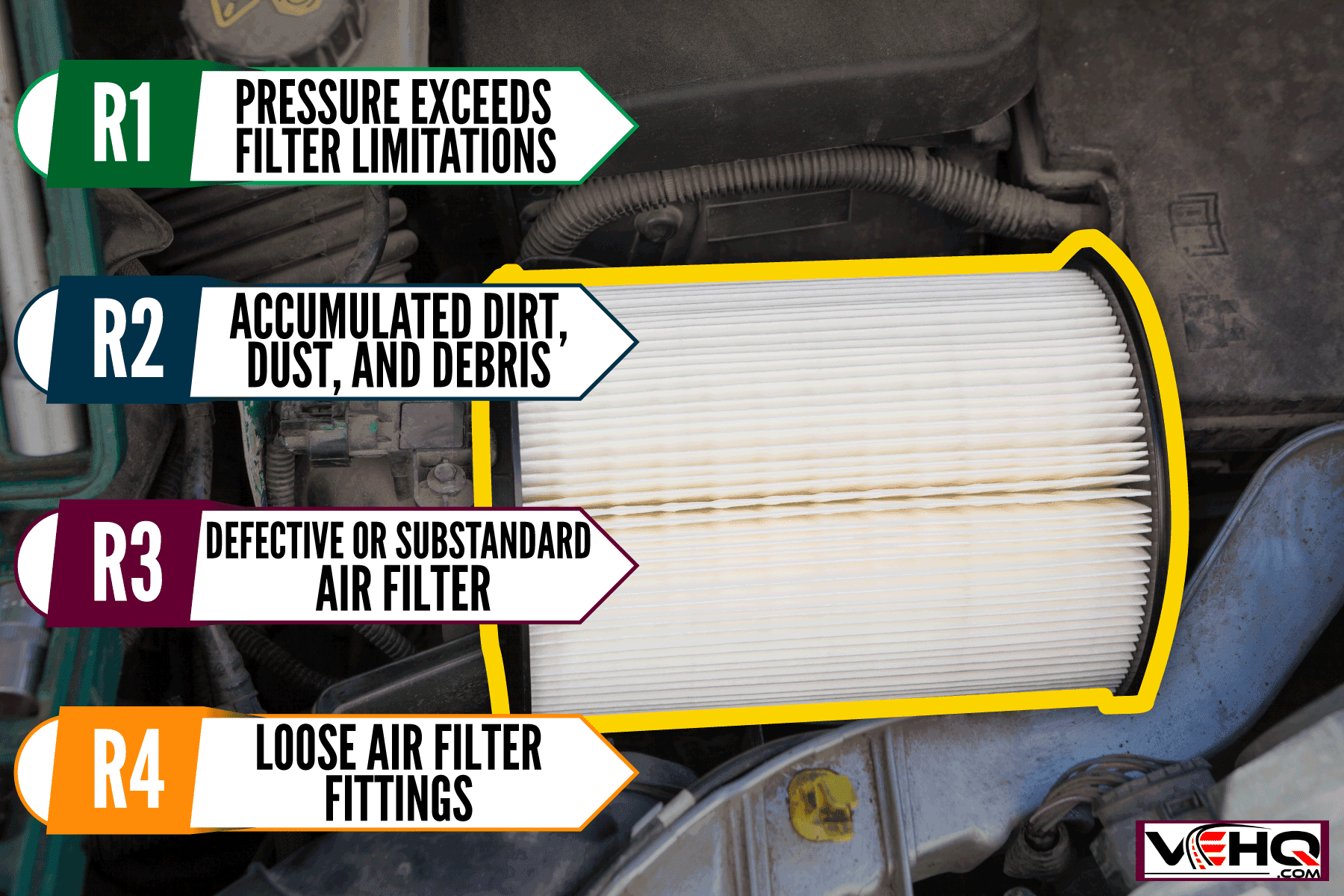
Why Does The Air Filter Fall Off From The Intake?
A car's air filter is a part of the air intake system. The system connects to the internal combustion engine and supplies the air needed to produce power.
The air filter is a critical component because it keeps the engine "healthy." If there is no air filter, dirt, dust, and debris can mix with the air flowing to the engine.
These foreign particles will accumulate in cylinders, pistons, and valves. Without the filter, the integral engine parts are at risk of corrosion.
If you have a fallen air filter, it will help if you know what causes the issue. Here are the reasons:
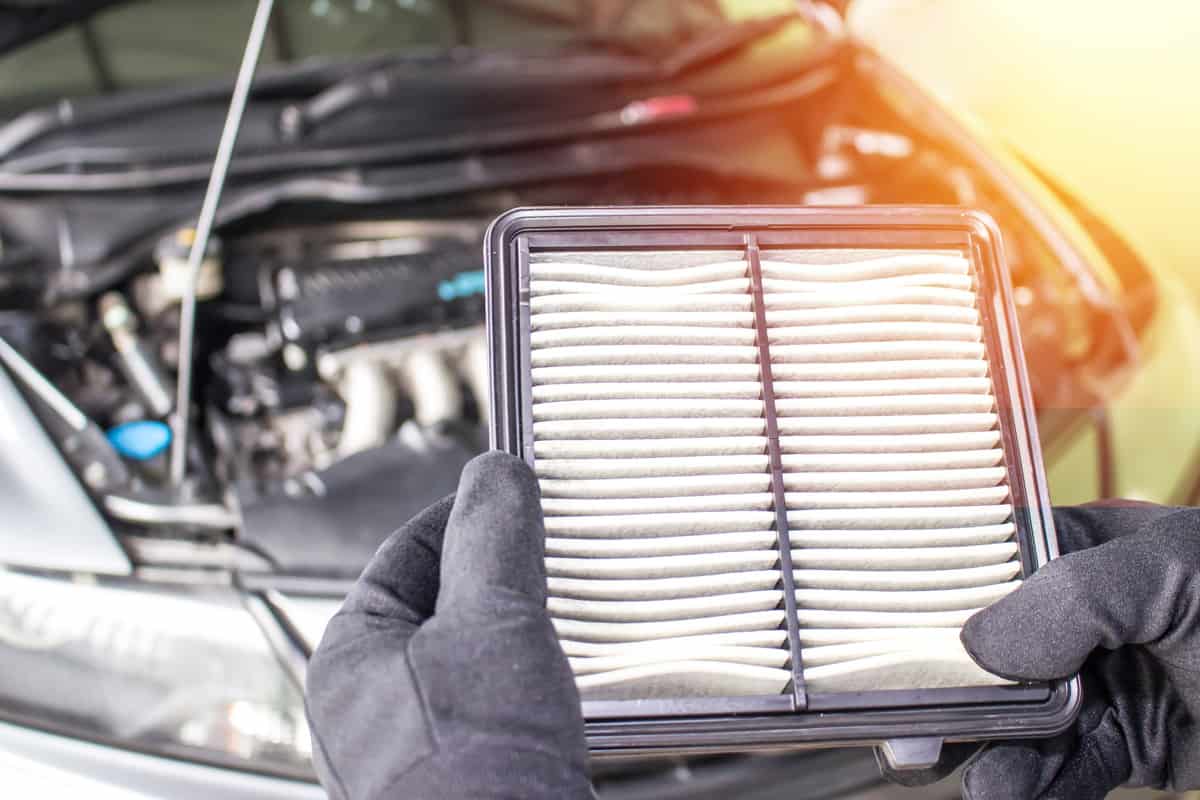
1. Pressure Exceeds Filter Limitation
According to the Filter Manufacturer's Community, filter collapse is a permanent deformation.
The first cause is a drop in the filter's pressure that exceeds the component's limit. The pressure restriction is around 20”-30” H2O or 5–7.5 kPa.
There can be differences in air pressure from the inside and the outside. The problem arises when the inner side of the filter is clean while the outer portion is dirty.
With more pressure exerted on the outer side of the filter, clean air cannot flow through the filter. Therefore, the increased pressure causes the collapse.
2. Accumulation Of Particles On The Filter
There can be clogging on the outer side of the filter due to the differential pressure.
The original color of the filter is white or off-white. When there are particles accumulated on the filter, the color darkens. Dirt, dust, and debris like sand, leaves, and insects cause color changes.
It can be brown or black, depending on how dirty the filter is. The high presence of soot and mold in the filter is going to wreak havoc on the car's engine.
If you see that the color is already dark, you should replace the filter.
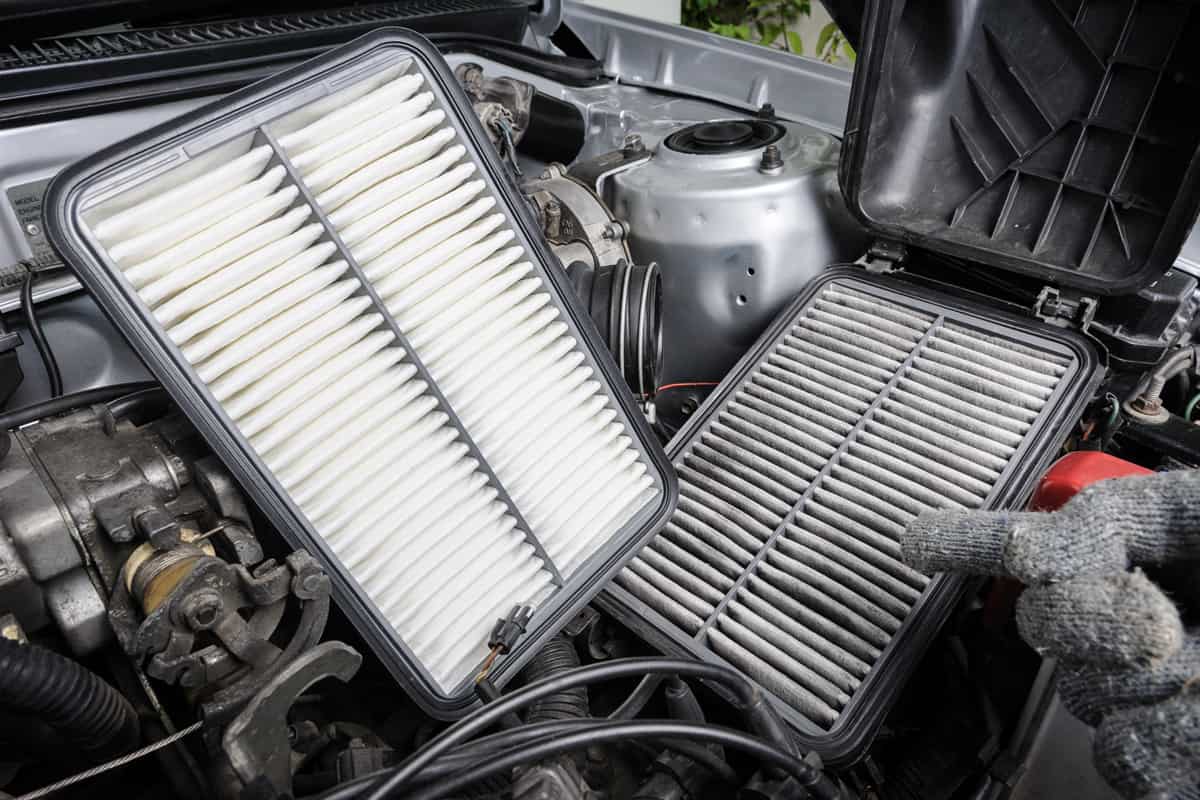
3. Quality Of The Air Filter
If it still falls off after replacing, the reason can be a defective or substandard air filter. Find a trusted air filter manufacturer for your air filter to avoid the issue. You can get high-quality filters that can withstand more pressure and collapse.
Before installation of the filter, inspect if there are dents on the liners or end caps. It is best not to use a damaged filter to avoid engine issues.
4. Loose Air Filter Fittings
Your air filter can also fall off if the bolts or screws connected to the system are loose. If this happens, you can tighten the bolts of the filter to solve the issue.
The problem could be a defective or unclean air filter when the issue persists.
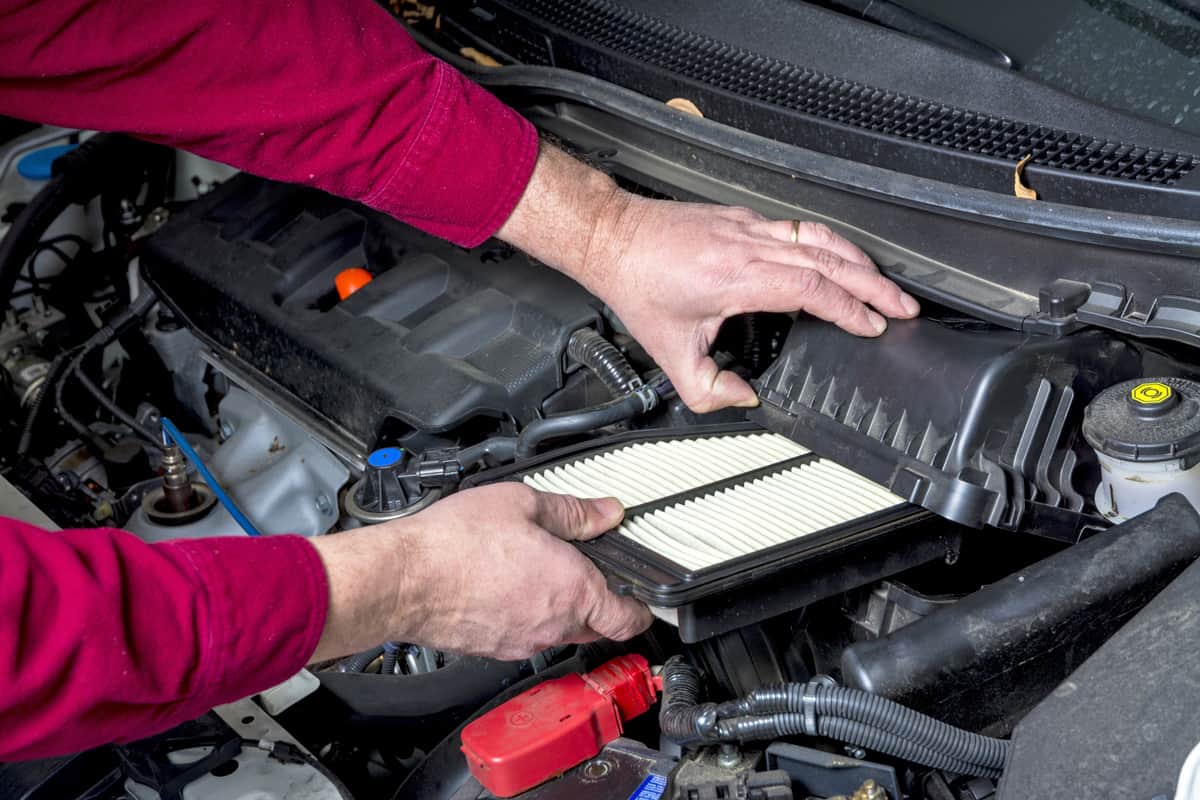
What Happens If The Air Intake Filter Falls Off?
Your car will show symptoms that the air filter has fallen off. The following are the signs to observe:
- Engine Misfire - You might have trouble turning on your vehicle due to the air filter collapse. A concentrated fuel ratio can flood the spark plugs and engine.
- Gas mileage decrease - The engine cannot get a clean supply of air flowing through the filter. The engine uses more fuel due to the lack of oxygen.
- Delayed performance - When you try to press the accelerator, but the car responds slow, the filter might have hindered the flow of clean air to the engine.
- Noisy engine - If you hear weird noises from the vehicle like coughing or popping sounds, the engine does not get enough airflow.
- Smoke in the exhaust - The engine cannot burn the fuel completely, resulting in black residue deposits in the exhaust.
- The smell of petrol - The scent of fuel might reek out of the exhaust because the engine did not properly burn it. If the exhaust is too hot, it can ignite the unburnt fuel that causes flames.
The culprit of the mentioned symptoms is the air filter. Continue reading to know the solutions for this issue.
How To Fix A Fallen Air Filter?
Fixing the air filter is inexpensive and needs minimal effort. Follow the solutions below:
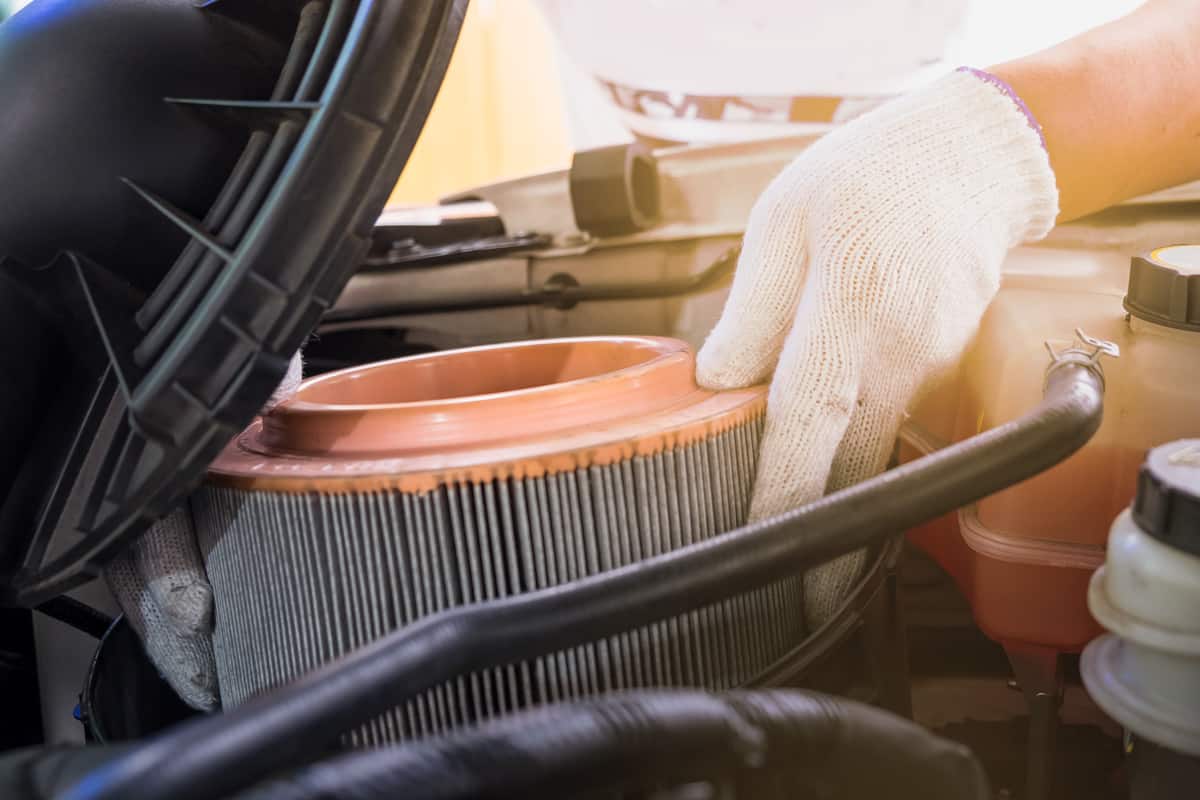
- The first solution is to tighten any loose bolts of the filter.
- Another option is to take out the dirty filter and clean it. Use a cleaning solution, spray on the filter and let it soak. You should clean thoroughly because very small particles might still be present. Afterward, air-dry the filter.
- For vehicles using Mass Air Flow (MAF), you should re-oil the filter. Spray enough fresh oil to the filter, then return it to its housing.
- If the filter fell due to defects or wear and tear, you should replace the engine air filter.
As a rule, replace the vehicle's engine air filter when it reaches at least 15,000 miles. Other car manufacturers recommend changing the filter every 30,000 to 45,000 miles.
Driving in severe conditions such as unpaved roads and hot weather will need frequent filter replacement.
You can refer to the vehicle's manual on the frequency of changing the filter. Most cars will need a replacement at least once a year.
Here is an engine air filter you can choose as a replacement:
Click here to see this product on Amazon.
Can You Drive Without An Air Filter?
You can still use your car without an engine air filter. But after some time, you will receive the consequences.
Driving without an air filter for a few miles is okay, with the premise that you drive in the city on paved roads.
However, it is too risky to neglect an air filter if you are traveling long distances, off-road, and in sandy areas. Regardless of the driving conditions, an air filter is a must.
Does An Air Filter Make Your Car Perform Better?
An air filter is vital for the engine's performance. The filter helps in supplying as much oxygen for the engine's needs. By doing so, the engine can be fuel efficient and reduce harmful emissions.
The accumulated debris, dirt, soot, and molds will reduce engine power with a fallen air filter. Replacing the filter can improve mileage and increase horsepower. Also, take note that air filter changes need careful installation because they can damage other engine parts.
Racing cars use specific air filters to achieve maximum power. The specialized filters for these cars might not be compatible with usual road cars. The effect can be detrimental to the engine instead of improving performance.
So you need to choose the right air filter for your vehicle type.
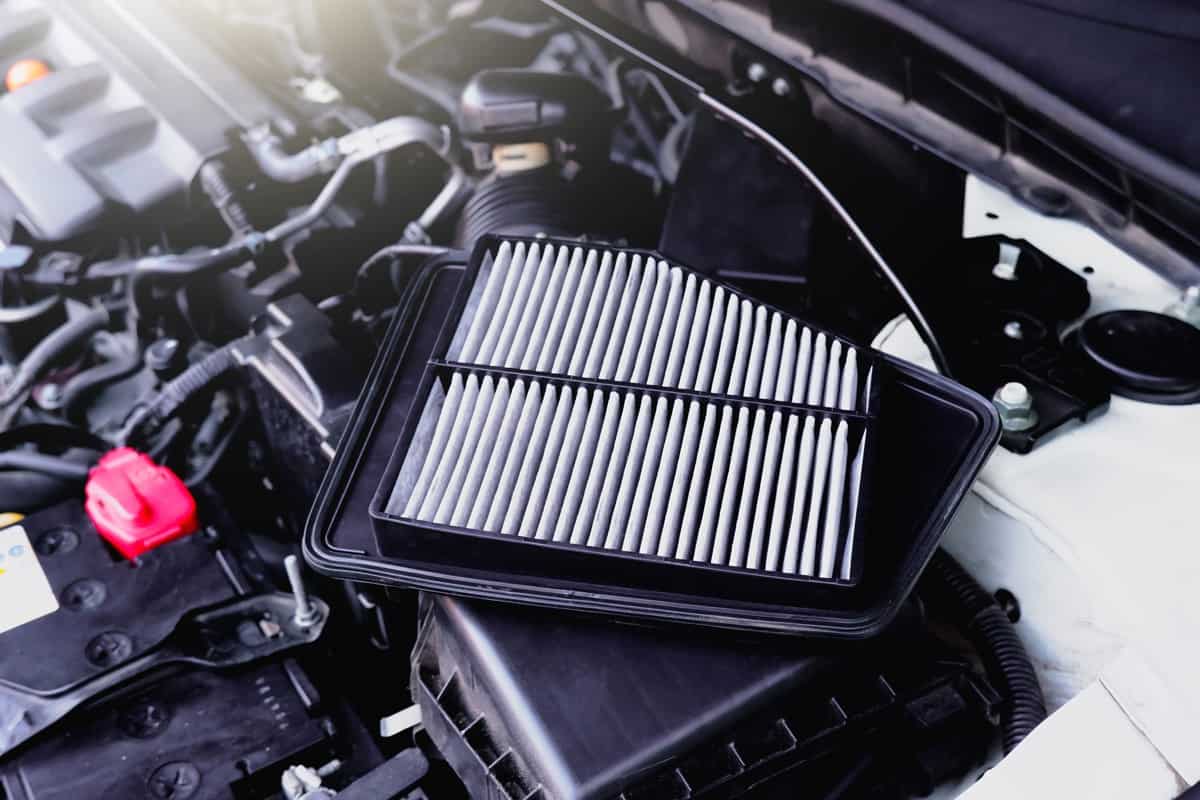
Can A Loose Air Filter Cause Check Engine Light?
The check engine light turns on when engine parts fail, such as the mass airflow sensor and fuel injectors.
When the light is on, it tells you that there is something off about your vehicle. If the filter fails, the engine will not have an adequate supply of clean air for combustion. Also, carbon deposit buildup is another consequence of a fallen air filter.
There should be regular cleaning or yearly replacement to maintain the air-to-fuel ratio of the engine ignition chamber. If you ignore the issue, you might spend big on repairs and replacements of related engine components.
In Closing
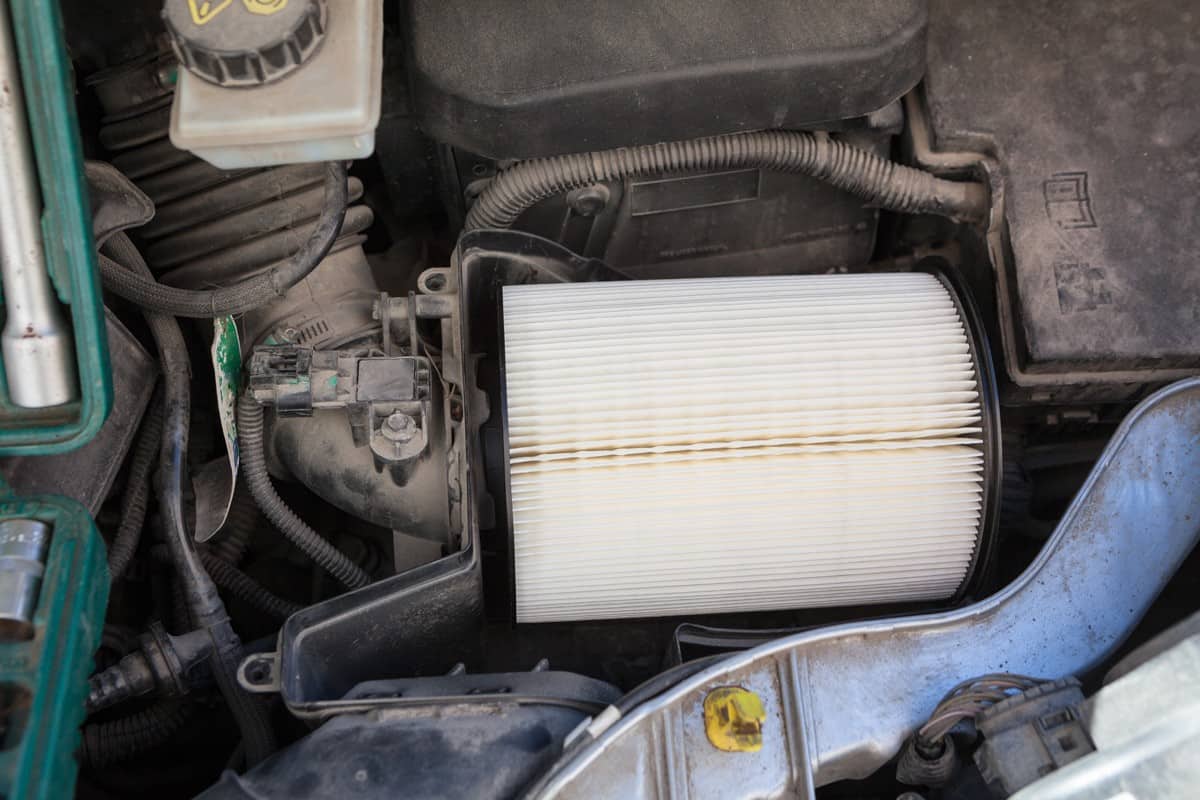
A fallen engine's air filter needs immediate action. Understanding how and why it falls off is important so you can correct the problem.
Although easy as it seems, you have to be careful when cleaning or replacing the air filter. If you do the right solutions to put back the air filter, your car will perform better.
Learn more about vehicle air filters from these posts:

